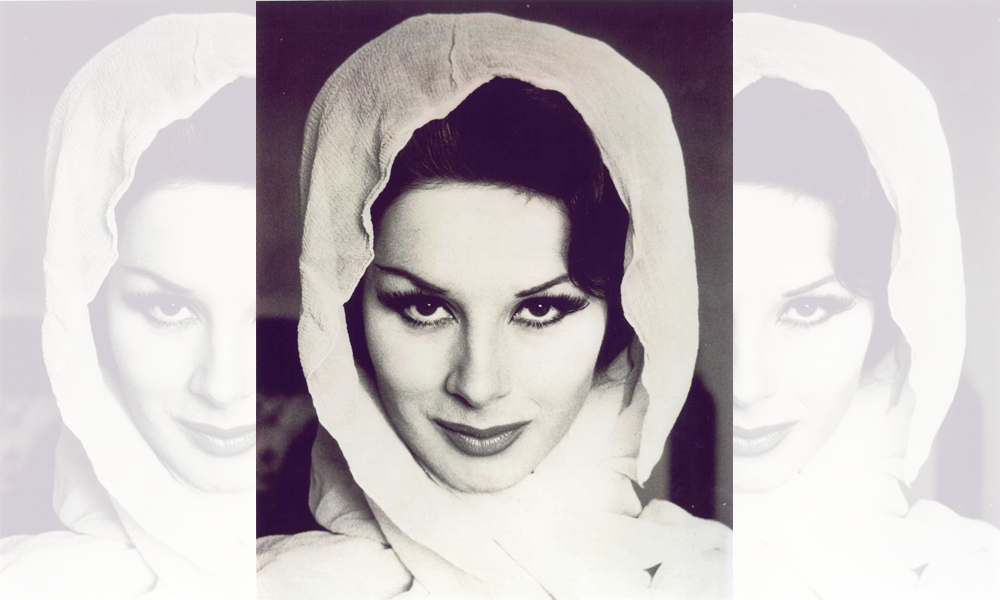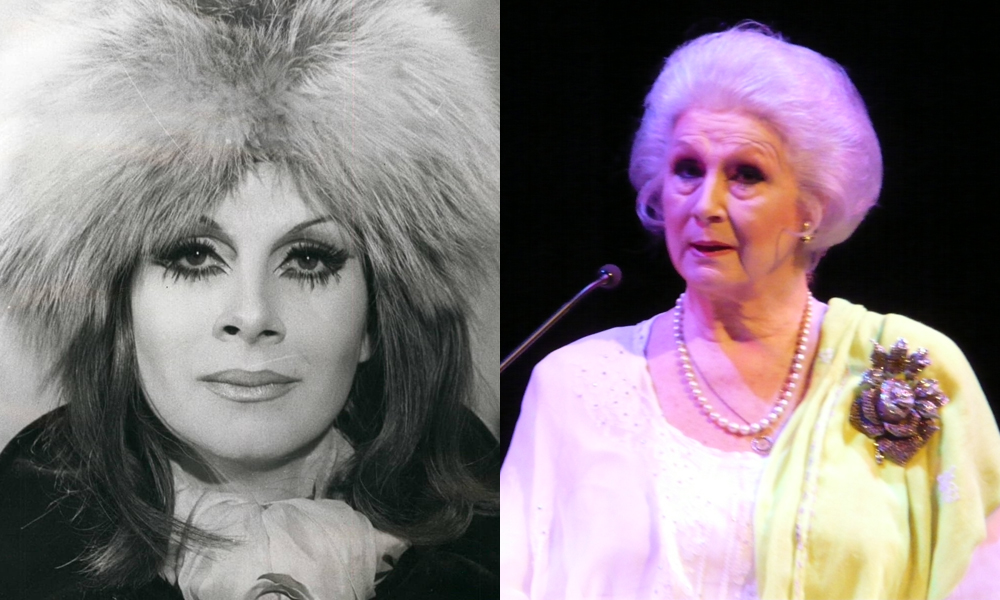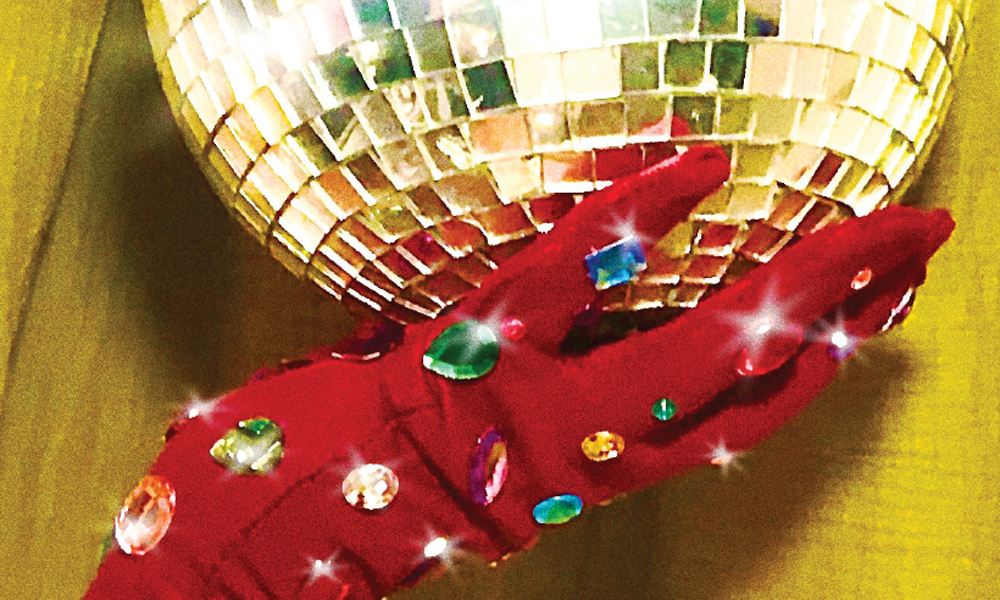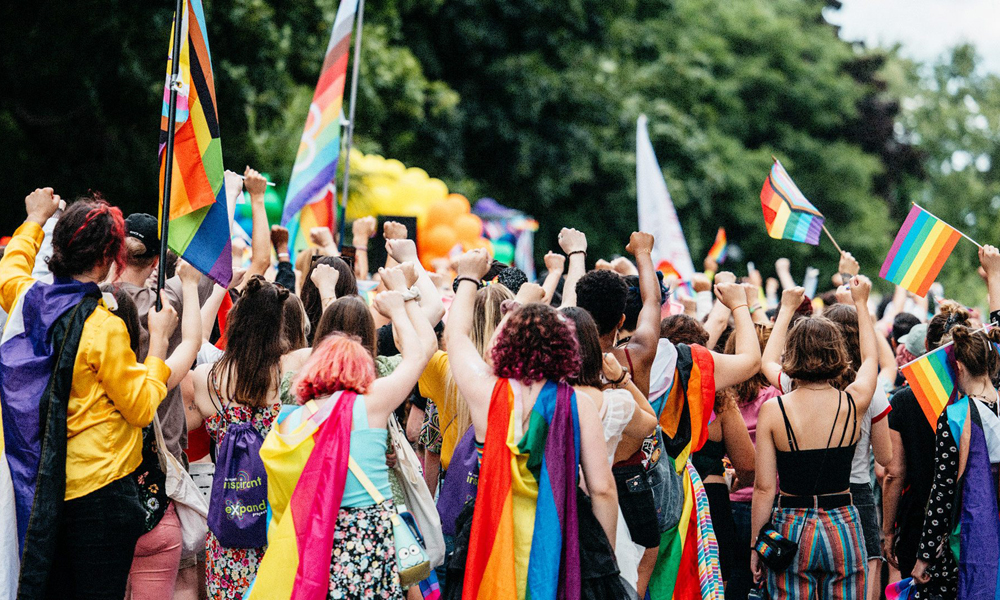Elvis Presley, Pablo Picasso and Salvador Dalí were all said to have been smitten with Ashley, who was the second British person to undergo male-to-female gender reassignment surgery in the 1960s, and who died late last year…
By Christopher Turner
On December 27, 2021, model April Ashley passed away at her home in London, England, at the age of 86. In recent years, Ashley has been hailed as a trailblazer for her campaigning work for the transgender community, but her life hadn’t always been filled with praise and adoration. Ashley underwent gender reassignment surgery in 1960, before embarking on an international modelling career that saw the British beauty photographed by the world’s top photographers and landing her on the pages of the most fashionable magazines, including Vogue. But it all came to a halt when she was outed as a transgender woman by The Sunday People newspaper in 1961.
Ashley – who was only the second British person to undergo male-to-female gender reassignment surgery – became the subject of public ridicule, but she persevered and in recent years was widely recognized for her role in championing transgender causes. Here’s her story.
Early life
Ashley was born George Jamieson on April 29, 1935, to a working-class couple living in Liverpool, one of nine children (six who survived). As a young boy, Ashley was bullied and beaten, and said she felt like a stranger in her own body.
“I never grew up as I was supposed to,” she recalled in The First Lady, a 2006 memoir about her childhood. “I was emaciated and very shy. I felt like a total freak. There were no whiskers, my voice didn’t break and I sprouted breasts. I hated myself and there was no one I could look to.”
As George, at the age of 16, Ashley joined the merchant navy; however, she was given a dishonourable discharge following a suicide attempt. By some accounts, she had been raped by a fellow sailor before the incident. A second suicide attempt resulted in Ashley being sent, at age 17, to the Ormskirk District General Hospital psychiatric unit. There, Ashley was treated with electroconvulsive therapy and injected with male hormones.
Ashley fled the hospital for London in 1955, followed by a move to Paris. By the late 1950s, she had begun using the name Toni April. Having started cross-dressing, she began working at the famed Le Carrousel nightclub in Paris, which was famous for its drag acts, and befriended performers such as Coccinelle, an internationally recognized trans woman, and Kiki Moustic. When Moustic gave her the number for a doctor in Casablanca, Morocco, Ashley began saving money to undergo gender reassignment surgery.
It’s in Paris where she met Elvis Presley, who was reported to have been captivated by her when they met. At the time, Ashley was wearing women’s clothing and Presley apparently had no idea that she was a man. The pair never slept together, but whenever they met up in the years afterward, Presley always bought her a bottle of champagne.
At the age of 25, having saved £3,000, Ashley travelled to Casablanca and underwent sex reassignment surgery on May 12, 1960, which was performed by pioneering doctor Georges Burou. She was only his ninth patient and only the second Briton to undergo male-to-female transition surgery. “Au revoir, monsieur,” Dr. Burou told her before administering an anesthetic. Some seven hours later, Ashley awoke to the words, “Bonjour, mademoiselle.”
After the surgery, all of Ashley’s hair fell out and she endured significant pain, but the operation was successful and she later said that becoming a woman made her the happiest she had ever been. In the early days of her recovery, she had only been given a 50-50 chance of survival, but she told an interviewer years later that she hardly cared: “I would prefer to have died than not to have the operation.”
After undergoing the groundbreaking procedure, Ashley returned to England and officially became named April Ashley, obtaining a passport, a national insurance card and a driver’s licence, all of which identified her as female. Attempts to persuade the superintendent registrar to change her birth certificate, however, failed.
Modelling career
Upon her return to the UK, Ashley embarked on a successful modelling career, and was photographed by famed fashion and portrait photographers Terence Donovan, Richard Dormer and David Bailey. There were appearances in British Vogue (shot by Bailey) among other high-profile magazines, and she even won a small role in Norman Panama’s The Road to Hong Kong, which starred Bing Crosby, Bob Hope and Joan Collins. The film would hit theatres in 1962, after the scandal erupted.
In 1961, her career was abruptly cut short after a friend sold her story to the British tabloid Sunday People, which then outed her as transgender. It caused a significant stir at the time; in fact, her film credit was dropped from The Road to Hong Kong because of the scandal.
“My career was destroyed, and apart from jobs where you were paid under the table, I never worked again,” she once told The Liverpool Echo. “With others, when they found out, my shifts would be changed, my hours reduced, and then they would tell me they didn’t need me…but then advertise for someone else. It was heartbreaking because I would have been a movie star.”
Despite the scandal, she found solace in the underground of London’s swinging ‘60s, where she partied with artists including Salvador Dalí and Pablo Picasso and was a fixture on the social scene. By her account, Dalí and Picasso wanted her to pose for them; she demurred, deciding they seemed too salacious.

Corbett v Corbett
In 1963, Ashley married aristocrat Arthur Cameron Corbett in Gibraltar, on Spain’s south coast, but the marriage soon ended. In 1966, Ashley’s lawyers tried to claim financial support, which prompted Corbett to respond the following year by filing suit to have the marriage legally annulled.
Corbett asked the court to declare that there had been no marriage, saying Ashley was in fact a man, even though he knew she had transitioned in 1960. Ashley disagreed, saying that she was a woman. The judge (Lord Justice Ormrod, who was himself a physician) considered medical evidence from a range of sources, but ultimately ruled that Ashley was a biological man and that it was not possible to legally change a person’s sex, which therefore rendered the marriage invalid.
“It has been established that the respondent is not, and was not, a woman at the date of the ceremony of marriage, but was, at all times, a male,” Ormrod devastatingly concluded.
For Ashley, the hearing in 1969 was an utter humiliation.
Corbett v Corbett and their resulting 1970 divorce was a landmark legal case that changed transgender rights in the UK for the worse, creating a legal precedent that allowed the widespread practice of legal discrimination against transgender and intersex people throughout Britain. As a result of Justice Ormrod’s decision, the unofficial correcting of birth certificates for transsexual and intersex people ceased, beginning more than 30 years of legal discrimination.
After the annulment
Despite the humiliation, after the annulment Ashley rallied, took advantage of the publicity and opened a restaurant, April and Desmond’s (also known as AD8), in the Knightsbridge neighbourhood of London. The restaurant and nightclub was flooded with show-business customers including Ava Gardner, Ingrid Bergman, Keith Moon and Dusty Springfield, but, despite her celebrity clientele, the public backlash and the negative attention she received from the court case became too much. The stress led to a heart attack in 1975 and, left with nothing, Ashley closed the restaurant and retreated to the US west coast to escape the prejudice and discrimination she faced at home.
But Ashley’s life wasn’t just a series of hardships. She tied the knot for a second time with Jeffrey West in the 1980s. They parted but remained friends until her death. Reported romances with high-profile heartthrobs followed, garnering expected media attention. Egyptian actor Omar Sharif and British star Peter O’Toole were both said to have bedded the beauty. Ashley also claimed to have had a brief romance with INXS frontman Michael Hutchence in the early 1980s.
Ashley returned to Britain in 2005, when she was legally recognized as female thanks to the Gender Recognition Act and became widely recognized for her role in championing transgender causes. In fact, in 2012, Ashley was awarded an OBE (the Most Excellent Order of the British Empire) from Charles, Prince of Wales, for her work raising awareness about transgender causes.
“I never asked to be born like this,” she stated after receiving the honour from the heir apparent to the British throne. “I would like to have been born normal like everyone else. I wanted to live in the real world and do what everyone else does, but I think I have lived my life with enormous dignity.” That she did.
“I don’t know whether life would have been so different if I had been born later,” she told the Liverpool Echo the following year. “It was incredibly difficult, but one has to keep one’s dignity. And I just had to get by as I have. Was I a pioneer? I just got on with my life. There was no point in being bitter. My father always taught me that the only person bitterness hurts is yourself. He said we are here to enhance life, and if you can’t enhance it, bugger off.”
She remained in the limelight in later years. At the age of 80, she advised actor Eddie Redmayne on how to approach the role of Lili Elbe in Tom Hooper’s 2015 film The Danish Girl, and was thanked in the film’s credits. The film, which was based on the 2000 novel of the same name by David Ebershoff, was loosely inspired by the lives of Danish painters Lili Elbe and Gerda Wegener. Elbe was a Danish painter and transgender woman, and among the early recipients of sex reassignment surgery. The film has been criticized in recent years for its casting of an English cisgender man to play a Danish transgender woman. Although he earned a Golden Globe nomination, a SAG nomination, a BAFTA nomination and a Oscar nomination for portraying Elbe, Redmayne told The Sunday Times in 2021 that he “wouldn’t take it on now” in retrospect. “I made that film with the best intentions, but I think it was a mistake.”
Regardless, over the years Ashley grew to become a kind of grande dame of Britain’s transgender community, appearing on television to answer questions about her childhood and identity. Besides the OBE, she was named a citizen of honour at a ceremony in Liverpool Town Hall on her 80th birthday in 2015, and received an honorary doctorate from the University of Liverpool the following year. Among many other awards, April also won a Lifetime Achievement Award at the European Diversity Awards in 2014; in 2017 she was given a Lifetime Achievement Award from Gay Times; in 2018 she received The Oldie Woman Award; and in 2019 she was awarded an honorary doctorate in literature from the University of London. There was even a major retrospective exhibition of her life in the Museum of Liverpool, April Ashley; Portrait of A Lady, that attracted one million visitors in 2013.
At a time when LGBTQ+ people were largely excluded from the spotlight, she’s became an inspiration thanks to her fight for her place in society. As a more informal adviser to thousands of LGBTQ+ people who sent her letters in later years, seeking advice about transitioning or dealing with hostile family members, she said she typically responded by offering blunt encouragement and information. Ashley usually offered three suggestions, which she shared with the Times of London: “Be kind to yourself, and to others. Be beautiful on the inside, and that will show on the outside. But most of all, be brave. Because you’ll need to be.”
—
CHRISTOPHER TURNER acted as guest editor for this issue of IN Magazine. He is a Toronto-based writer, editor and lifelong fashionisto with a passion for pop culture and sneakers. Follow him on social media at @Turnstylin.







POST A COMMENT